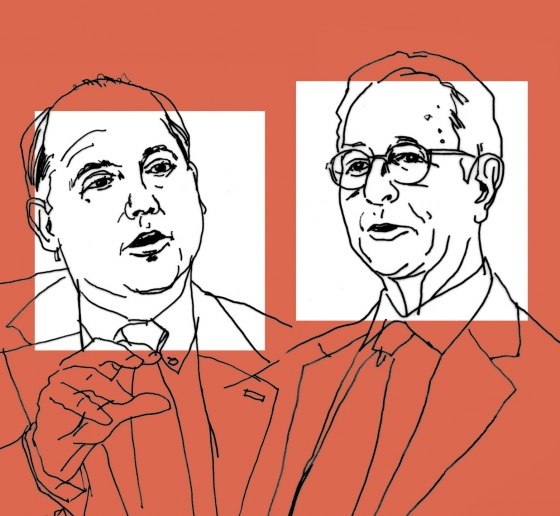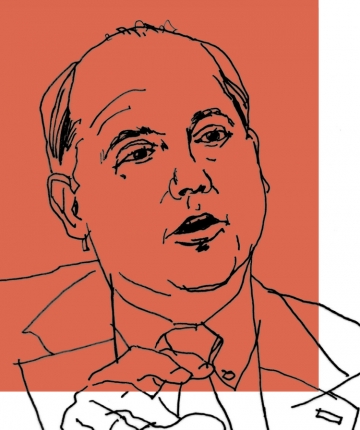Beyond “Unprecedented”: A Shareholder-Stakeholder Smackdown
In episode five of Columbia Law’s new limited podcast series, hosted by Professor Eric Talley, corporate governance experts Ira M. Millstein and Leo E. Strine Jr. discuss how companies must begin valuing their workers and their environmental impact as highly as their shareholders in order to survive the COVID-19 pandemic.

The belief that a corporation’s highest purpose is to maximize profits for its shareholders, first articulated by economist Milton Friedman, has guided corporate behavior for half a century. Now, the COVID-19 pandemic, the racial equity movement, and the climate crisis are amplifying calls for corporations to focus on employee welfare, social responsibility, and environmental sustainability. Can corporations please both shareholders and stakeholders?
In the fifth episode of “Beyond Unprecedented”: The Post-Pandemic Economy, Eric Talley hosts a conversation with corporate governance experts Ira M. Millstein and Leo E. Strine Jr. to discuss the history of “shareholder primacy,” the source of the pressure on public companies to boost stock prices, and the role government should play in redirecting corporate priorities.
(Download a transcript.)
Stay tuned for new episodes of Beyond “Unprecedented” this fall. Subscribe and learn more about the series.
Meet the Experts
Ira M. Millstein ’49 is the founding chair of the Millstein Center for Global Markets and Corporate Ownership at Columbia Law School and author of The Activist Director: Lessons From the Boardroom and the Future of the Corporation. He is also a senior partner at the international law firm Weil, Gotshal & Manges LLP, where he practices in the areas of government regulation and antitrust law and counsels boards on issues of corporate governance.
“What did the corporate community do with the handouts it got? They bought back stock. They did not invest in the future.”
—Ira M. Millstein ’49
Leo E. Strine Jr. is of counsel in the Corporate Department at Wachtell, Lipton, Rosen & Katz. Prior to joining the firm, he was the chief justice of the Delaware Supreme Court from 2014 to 2019, where he wrote hundreds of opinions in the areas of corporate law, contract law, trusts and estates, criminal law, administrative law, and constitutional law. He serves as the Ira M. Millstein Distinguished Senior Fellow at the Millstein Center.
“If you don’t pay everybody a living wage, you’re not doing what you should for racial inequality.”
—Leo E. Strine Jr.
Eric Talley, Isidor and Seville Sulzbacher Professor of Law, writes and researches at the intersection of corporate law, governance, and finance. As a co-director of the Ira M. Millstein Center for Global Markets and Corporate Ownership, Talley shapes research and programs focused on the future of corporate governance and performance. Talley is a frequent commentator in the national media, and he speaks regularly to corporate boards and regulators on issues pertaining to fiduciary duties, governance, and finance. He is a graduate of the University of California, San Diego, and earned his J.D. and Ph.D. in economics from Stanford University.
“We’re going to need to come up with a way to measure various attributes of performance under a stakeholder model. . . . It’s not that hard to do it under a shareholder primacy approach. Look at the stock returns and you’re going to have at least a proxy for how things are going. Once we start folding in all these other constituencies, we’ve got, at the very least, a measurement problem.”
—Professor Eric Talley
About the Series
Beyond “Unprecedented”: The Post Pandemic Economy is produced by the Columbia Law School Office of Communications, Marketing, and Public Affairs in conjunction with the Millstein Center for Global Markets and Corporate Ownership.


